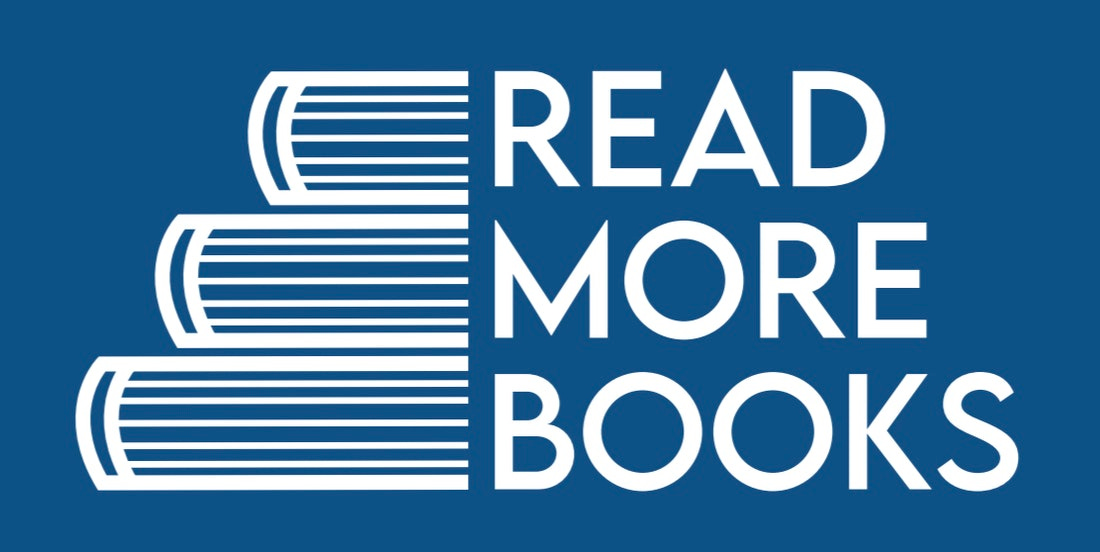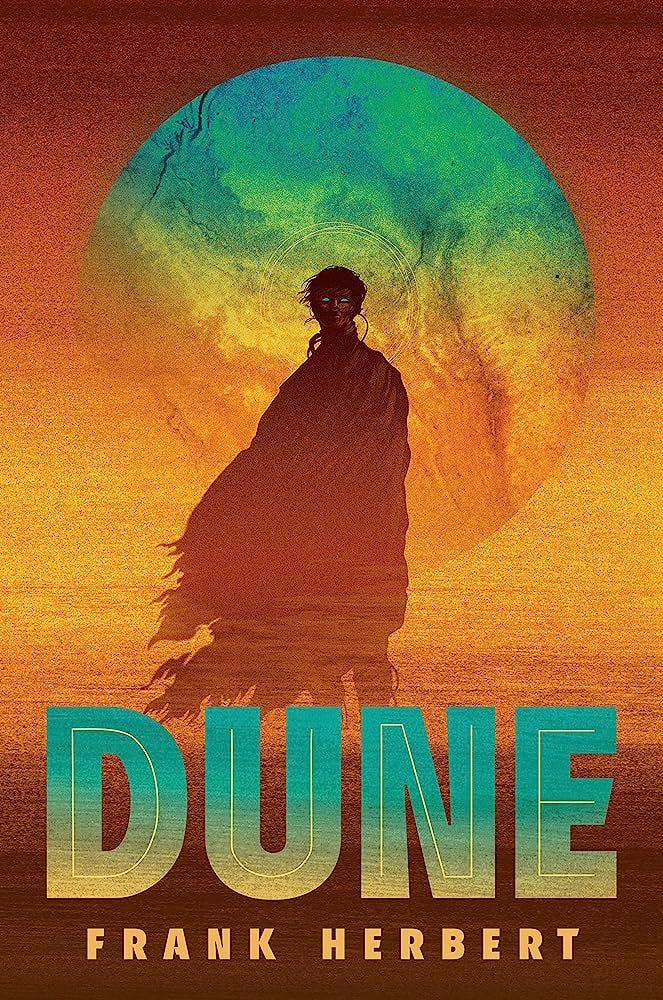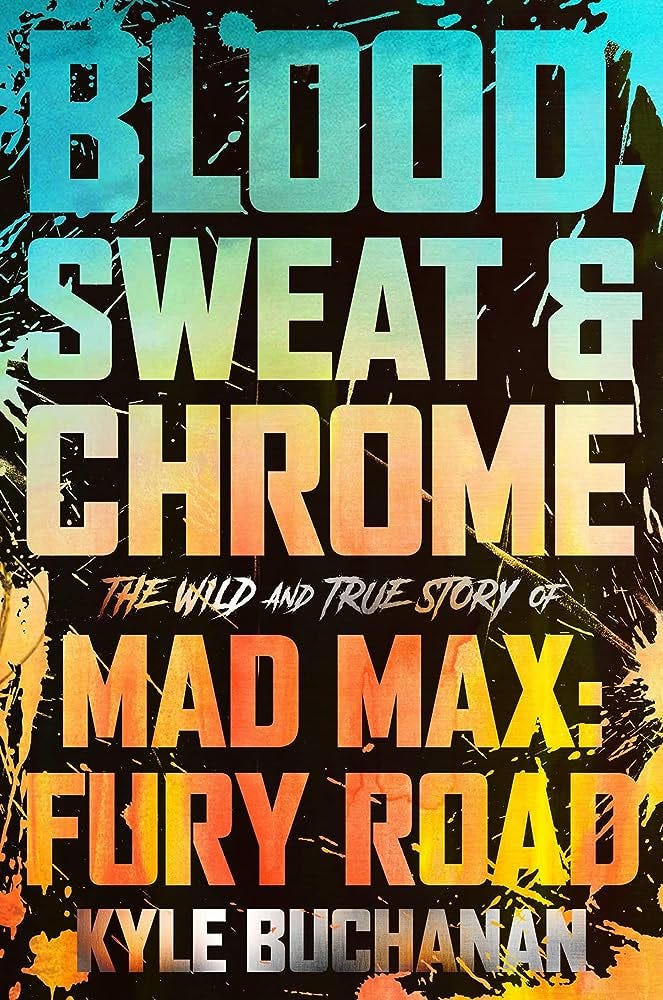What to Read Next: Sci-Fi Classics — Dune and Fury Road
Issue #293
Happy Friday, readers!
This week I’m excited to share a couple of recent favorites in the sci-fi genre.
My first reading of Dune wildly surpassed my expectations; I’m so glad to have read a 60-year-old sci-fi story that doesn’t feel dated.
The other book I’m featuring today is not sci-fi itself, but rather tells the wild, incomparable backstory of the decades-long making of Mad Max: Fury Road — one of the great sci-fi action films of the modern era.
Let’s jump in!
Dune by Frank Herbert
“The mystery of life isn't a problem to solve, but a reality to experience.”
Published: 1965 | Pages: 603 | Genre: Fiction (Sci-Fi)
I’ve read plenty of sci-fi classics over the years, but rarely have I enjoyed one as much as I relished Frank Herbert’s Dune. Older stories, like Asimov’s Foundation or Bradbury’s The Martian Chronicles, tend to feel dated at times; Dune, on the other hand, was always fresh, insightful, and exciting.
Dune succeeds, for me, because the focus is squarely on the human element rather than on science, technology, or space travel. Though it takes place on an invented planet — the desert world of Arrakis, aka Dune — Paul Atreides is a young man adjusting to an unexpected regime change and learning about his own leadership abilities along the way.
Yes, there are giant worms and a few space lasers, but ultimately it’s a story about resilience. It’s a story about change. It’s a story about power struggles between families and clans — more like Game of Thrones than 2001: A Space Odyssey.
“I must not fear. Fear is the mind-killer. Fear is the little-death that brings total obliteration. I will face my fear. I will permit it to pass over me and through me.”
Dune also had so much more depth than I expected. It’s unabashedly environmentalist and as psychologically revealing as any of history’s great novels. And although I wouldn’t call it feminist, the female characters are strong, opinionated, and memorable.
For being almost sixty years old, the narrative never felt stale. In fact, it will only become more relevant as our planet’s climate changes before our eyes. Just as the Atreides clan and the Fremen people learned to live in waterless environs, so will Earth-bound humans need to learn to live in a world of climate chaos.
Dune immediately became one of my favorite sci-fi books ever and I look forward to diving even deeper into its mythology next year as part of The Big Read.
Blood, Sweat & Chrome: The Wild and True Story of Fury Road by Kyle Buchanan
“Every movie is hard — nothing was as hard as Fury Road.”
Published: 2022 | Pages: 384 | Genre: Non-Fiction (Culture)
Since Hollywood’s writers went on strike on May 2nd, I’ve been reading a lot about the industry and have come away really impressed with everyone who makes the television and movies we all enjoy.
One of the wildest stories I read this summer is documented in Blood, Sweat & Chrome, a book that details legendary director George Miller’s decades-long ordeal to make Mad Max: Fury Road. It’s constructed as an oral history, so we hear directly from producers, actors, writers, set designers, stunt people, and George Miller himself.
Naturally, the book pairs perfectly with watching the movie. I had seen it once before, years ago, and came away even more impressed this time. Having background knowledge of how difficult it was to make every single minute of that movie added a whole new layer of appreciation.
The story itself is great, but what I most appreciated were the unexpected insights into creativity and putting out quality work. Miller displayed a measure of persistence, resilience, and originality (even though Fury Road is a sequel) that’s almost impossible to find in Hollywood these days.
In my industry, there’s a real push to use AI tools to make work easier and more efficient — ultimately for the sake of greater productivity and more output. But Miller has the opposite view, which really resonates with me:
“You don’t just do what’s easiest. You do what’s best for the film.”
On the surface, it’s a niche behind-the-scenes Hollywood story, but the lessons from Blood, Sweat & Chrome can be applied incredibly broadly to any creative act or group project. It’s also just a damn entertaining story.
Thanks so much for the time and inbox space. I deeply appreciate it!
-Jeremy




I'm also a fan of Dune! Funnily enough, it made ZERO sense to me when I first read it ten years ago, mostly because I had completely missed the part about spice being a sort of drug. Turns out, that's fairly crucial to, you know, the whole plot... I read it again after watching the most recent movie (side note: Hans Zimmer is a legend), and I found it helped the story make a lot more sense. There are so many characters and subtly moving parts that seeing the movie helped me build a better mental framework around the novel.
I have personally found Asimov to be fresh even today, but maybe that's because he was my first true science fiction love. The creativity of that whole series - what a beautiful embarrassment of riches...
I read Dune decades ago but think about it all the time, especially now, as our water supply is threatened. You are exactly right: it continues to work because of the focus on people who must adapt and overcome fear..